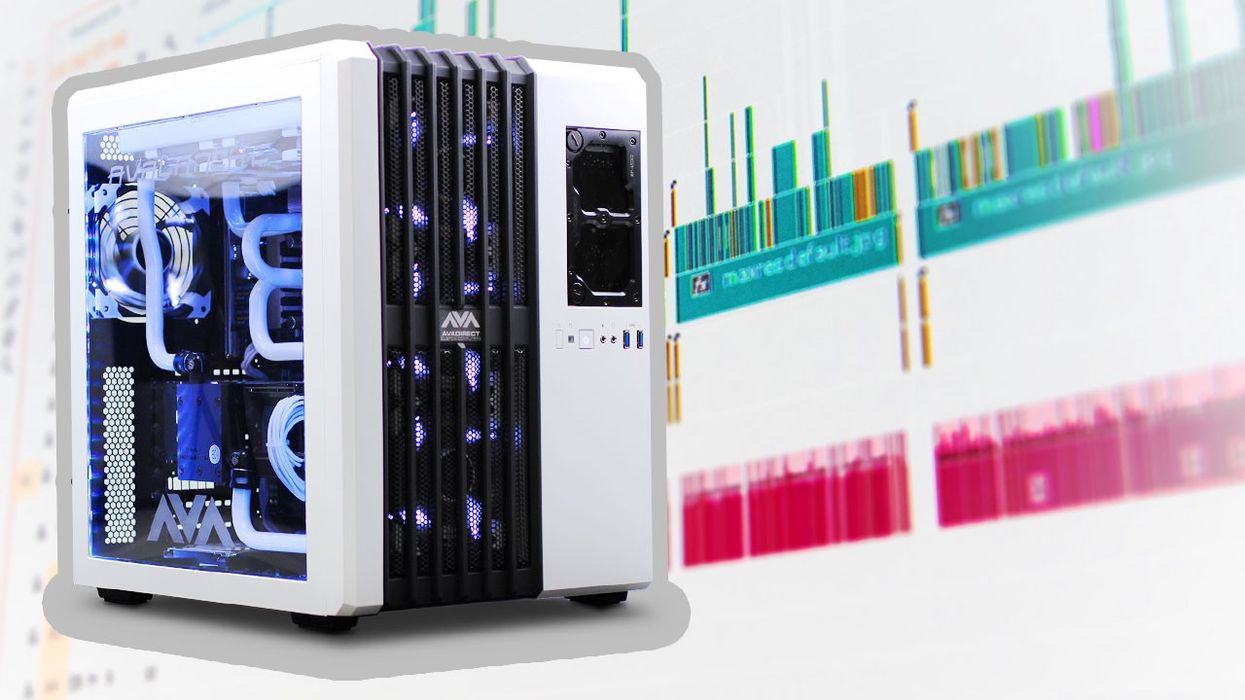How to Build the Best PC for Your Video Editing Needs

If you want your footage to play smoothly inside the non-linear editing (NLE) system of your choice, what is the most important component? We'll go through them one-by-one below, but first, let me stress one particular thing.
If you’re a new filmmaker who isn't making videos for a living, you do not necessarily need a powerful computer to work off of. The truth is that you can conduct professional editing with any available machine and editing software. Work with what you have! The hardware is less important.
Any pro will tell you that rather than focus on the tools, you should focus on improving your skill. This is accomplished via learning the art of storytelling and gathering feedback on your work. However, if video production and video editing is the way you make a living, a good PC will, of course, speed up your workflow. It will make your work more efficient (which eventually will save you money).
CPU
The most crucial factor involved in editing is CPU. Many people think that it’s GPU, but if you’re on Premiere Pro or another software, CPU determines how quickly you can accomplish editing tasks. The exception here is DaVinci Resolve, the performance of which relies heavily on GPU computing power.
CPU computing power is mainly used in two ways for video editing:
Encoding and exporting the videos
Generating video previews during the editing process
Your NLE will also take the advantage of many CPU cores and hyperthreading. That's true for most popular NLEs such as Premiere Pro, Sony Vegas, and Final Cut Pro. The article I based my video on references the test run by Puget Systems that looks into the benefits of multi-core CPUs.
CPU determines how quickly you can accomplish editing tasks.
As an example of exporting 1080p H.264 video, the test found that Premiere Pro could use 10 CPU cores before the performance stopped progressing. For a complex editing project, tests showed that two cores produced 2x the performance of one core, five cores produced 4x the performance, and 10 cores produced 6x the performance. The interesting fact is that 16 cores caused a drop in the performance to around 5x.
What does this mean? Invest a major part of your budget in CPU. A 6-core CPU would be a good idea if you’re serious about building a powerful PC. By rule of thumb, the higher the resolution of the video you're editing, the more you will benefit from a faster CPU.
GPU
Graphic cards are important if you’re playing video games, but it's actually less important for editing tasks. Anyway, it still has an effect on playback, especially if you use effects that rely on the GPU (such as Lumetri Color, Fast Blur, blending modes, and cross dissolve). The exception here is DaVinci Resolve, which requires more powerful GPU.
What’s worth remembering here is that you won't need the best graphics card on the market. The advantages you will receive aren't that big of a difference once you have a semi-decent one.
RAM
RAM is important as well, with video editing software often using large amounts. The higher the footage resolution, the more RAM will be useful. 16 GB should be a starting point. If you’re editing 4K footage or higher, you should consider 32, 64, or even higher RAM.
Video editing software tends to use large amounts of RAM very well.
SSD/HDD
SSDs provide much better performance than hard drives, and so it would be best to work only on SSDs. Here’s a ranking of storage configurations:
Worst configuration: HDD for Everything (Operating System, Project File, Source Footage, Cache Files),
Better configuration: SSD for Everything (Operating System, Project Files, Source Footage, Cache Files),
Even better configuration: SSD 1 for Operating System /Software, SSD 2 for Project Files/Source Footage/Cache Files,
The best configuration: SSD 1 for Operating System /Software, SSD 2 for Project Files/Source Footage, SSD 3 for Cache Files,
If you can afford one, buy at least small SSD for installing your operating system and software. This will make your PC significantly faster.
MOTHERBOARD
The specs of the motherboard itself will not affect your NLE performance, but other components need to be well-supported by the motherboard of your choice. Remember that it’s good to have onboard sound and a number of USB ports.
PSU
A high-quality power supply is a must for any video editing PC. Since it's hard to recognize which one is of the highest quality, seek a recommendation from a trusted source.
Have you considered upgrading your PC? Let us know down in the comments below.
Source: Logical Increments












